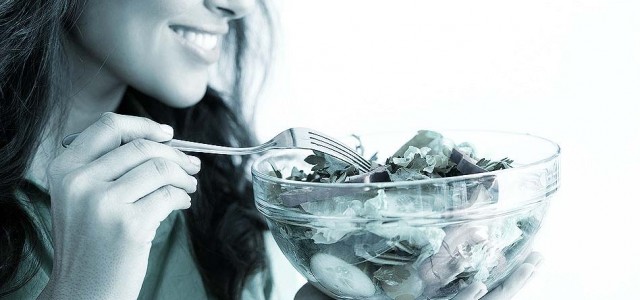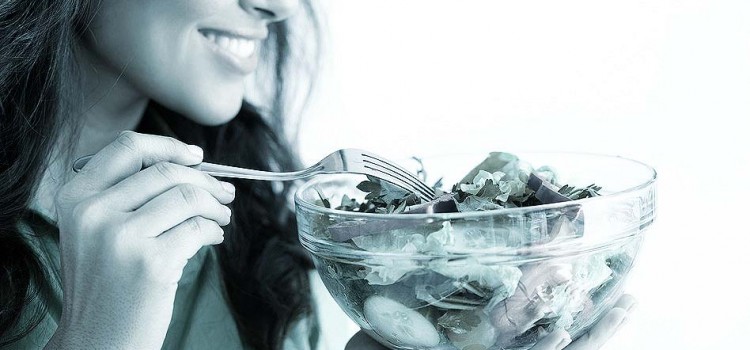

Half Marathon Nutrition – What to Eat Before and During Your Run
Running Lifestyle February 17, 2014 admin 0

One of the most overlooked aspects of half marathon training is nutrition. Running any long distance requires fuel for your body and you’ll get quality output when you have quality input. For anyone who would like some pointers on diet and nutrition for half marathon training, there are a number of steps to take and the techniques to apply in order to achieve your goals.
Regardless of your personal goals, you can acquire them with little hard work and a solid plan. You’ve put in many weeks of hard training, but a successful race is all about a good half marathon nutrition and diet plan in the weeks leading up to the race.
Realistic diet planning starts a few months or more before the half marathon. Dietary planning and preparation is just as vital as the real running part of any training. Learn how you can balance your protein, carbohydrates and fats consumption for optimal performance. These are the essentials for a great finish.
Diet: What to eat and drink for half marathons
One should follow a diet that consist of carbohydrates, proteins, healthy fats, and water before and after racing.
Proteins
Athletes with high endurance need more protein than inactive individuals. Protein is the fundamental element behind muscle growth and aiding in repairing damaged muscle, making it a significant component of a pre and post exercise meal. Lean proteins, such as turkey, poultry, lentils, tofu and beans are healthier choices than highly-rich fat protein sources like red meat.
Protein bars and protein drinks maybe taken in, but with high caution as they are highly rich in fat and sugar. A healthier proportion of a daily calorie intake for a runner is not more than 30% of energy from protein sources. A chicken breast has close to 25 gm of protein while an egg has 8 gm. Your protein consumption should consist of around 0.65 gm protein for every kilogram of body mass.
Lean meat cuts and plant-based proteins are the best choices for athletes. Quality cuts of meat, cold water fish, egg whites, nuts, avocados and almond milk or low-fat milk are all good protein sources for an athlete. Protein requirements are much higher for athletes than couch potatoes. Aim at 30% of your total calories from protein at a maximum.
Carbohydrates
Carbohydrates are the principal source of energy for body metabolism. Carbohydrates fall into two categories: simple and complex. Simple carbohydrates, such as fruits and sport drinks, provide fast energy sources. They’re digested easily and provide the needed body energy quickly.
Complex carbohydrates are oats, pastas, vegetables and other whole grains. Go for fresh vegetables and fruits, and brown rice. Complex carbohydrates are the best option. They take more time to digest and will provide the energy over an extended time period. Generally, runners need both types of carbohydrates but the timing on your consumption is different.
The simple carbohydrates should be consumed shortly prior to training or racing. Runners need at least 50% of their every day calories from complex sources of carbohydrates. Processed junk food like cookies, candies and sweetened breakfast cereals may appear as fast energy sources but they don’t include the fiber which slows down the digestion enough to gain most of the additional nutrients. Enough fiber slows down the digestion and offers a more steady energy release for better training and racing.
This group gives energy quickly when racing and training. You body will crave carbohydrates when doing long miles and after a race or good workout. Maintain the 50% daily caloric intake from carbohydrates, if you try to cut back, you’ll feel sluggish and fatigued.
Fats
There are unsaturated fats such as seafood, olive oil, seeds, nuts, soybeans, sunflower and avocados which are deemed healthy. The unhealthy ones are the saturated fats and Trans, and should be avoided. These fats are present in animal products, including diary and meat. Unhealthy fats shouldn’t contain more than 10% of the total daily calories of a runner. For longer races (probably more than an hour), runners depend on their healthy fats to fuel their bodies and get energy. Runners who have long miles of training for half marathons will need to gain around 20% of their everyday calories from fat.
The body requires fat for precise health and metabolism. Endurance athletes deplete fat rapidly when intensively doing prolonged exercise. Both fat and protein enclose the same quantity of energy per every gram, but excess fat can slow your physique down.
Water
Hydration is crucial when training and running. 60% of our body comprise of water, found inside and outside our cells, muscles and tissues. Runners need to be well hydrated prior to racing or working out, and need to refill the water lost during race or work out. Athletes are advised to consume 128 oz of fluids daily. Dehydration hampers your training efforts and impacts your run performance negatively. 2% dehydration is enough to slow you down by 10%.
Water is needed in the cooling process of the body and proper functioning of organs and muscles. Drinking water while racing is vital in keeping your body temperatures low. Take in complex carbohydrate that is easily digested one hour before you race. Example, bread with peanut butter or oatmeal with banana are well-known breakfasts before starting a half marathon. You should consume a high-rich carbohydrate gel fruit or take in a protein-carbohydrate drink every 3-5 miles. Drink half a cup of water each and every mile. Don’t waste your effort and slow down just because you are dehydrated.
Caffeine
A moderate caffeine dose will stimulate your nervous system, making you more alert, improving your concentration and cutting down the feeling of effort. This means run performance. Even though caffeine is effective on most runners, consider trying it in training first. In case of side effects, simply replace your highly concentrated caffeine drink with standard non-caffeinated energy gel.
The Ultimate Nutrition Tips for a Half Marathon
- Eat healthily in the days before your half marathon. You don’t need to carbo-load
- Eat easily-ingestible food the night before half marathon.
- Drink little and often. Make sure you are hydrated before starting the race.
- Consider a simple breakfast. Should be a good slow-releasing energy source that you are used to, e.g. toast, porridge cereals, etc.
- Ensure that you’ve a snack after the run – fruits, biscuits, energy bars will replenish your energy levels fast.
- Keep drinking after you finish running. This will boost your recovery.
Take in a protein recovery drink immediately after finishing the race, and take a balanced meal 1 or 2 hours later. Combine the training, the diet and enough rest and you’ll be well on your way to attain your goals, and perhaps even a PR in your half marathon.
No comments so far.
Be first to leave comment below.